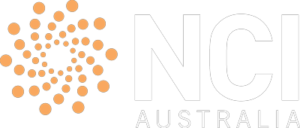Workshop Submissions Closed
SCA2024 presents full- and half-day workshops with the goal of expanding the knowledge and experience through lecture and hands-on tutorials for practitioners and researchers. Workshops focilate topic focused and in-depth discussion with dedicated interaction and network opportunities. Workshop proposals are reviewed and selected by the oragnising committee. Workshop topic includes, but not limited to, a group discussion around certain topics in a particular area of interests, or a training session with particular scientific research tools and platform for showcase and promotion, or a working group get-together with progress sharing and planning.
If you are still considering running a workshop, please get in touch with us at SCAsia2024@gmail.com.
Workshop: Programming Model and Applications for the Grace Hopper Superchip
Organiser: NVIDIA/XENON
Location: Meeting room C2.6
Date and Time: February 19, 2024, from 9 am to 5 pm
Description: Arm technology has become a compelling choice for HPC due to its promise of efficiency, density, scalability, and broad software ecosystem support. The datacentre have long been dominated by x86 CPUs. There is a growing interest in diversifying and exploring alternative compute architectures to re-create a vibrant and diverse ecosystem as it was more than a decade ago. To further advance datacentre and accelerated computing solutions, NVIDIA has built the Grace Hopper Superchip which brings together the groundbreaking performance of the NVIDIA Hopper GPU with the versatility of the NVIDIA Grace CPU, tightly connected with a high bandwidth and memory coherent chip-2-chip (C2C) link. The NVIDIA Grace CPU packs 72 high performance Armv9 cores on a single die to realize competitive FP64 TFlops of computing performance and up to 500GB/s of memory bandwidth at industry-leading power efficiency. In this interactive hands-on session, our experts will answer any questions you may have about fully unlocking the scientific computing potential of the Grace CPU. We will guide the attendee through compile, execute, profile and optimize codes for Arm to demystify those claims that changing CPU architecture is hard. Remote access to NVIDIA Grace will be provided.
Workshop: Quantum Computing workshop + Quantum AI tutorial
Organiser: SCA2024 Organising Committee
Location: Meeting room C2.3
Date and Time: February 19, 2024, from 9 am to 5 pm
Description: Quantum computing and hybrid models are emerging trends in HPC. This session gathers quantum experts, algorithm designers, and HPC researchers to explore quantum methods, their integration with classical HPC systems, and their potential for solving complex computational problems. As we stand at the threshold of quantum computing’s revolutionary potential, this workshop showcases the groundbreaking research and insights. We will talk about innovative approaches to integrate quantum and classical resources, simulate quantum systems, explore quantum algorithms, and harness the power of quantum computers for practical problem-solving. Whether it’s quantum chemistry, materials science, or fundamental physics, Quantum AI, optimisation, or cryptography, your abstract should delve into the evolving landscape of quantum computing and its potential to reshape science and technology. Join us in this exciting journey of quantum exploration and researcher’s forward-thinking case studies, where the future unfolds through the gates of quantum computation.
Quantum AI tutorial
Description: The recent physical realisation of quantum computers with dozens to hundreds of noisy qubits has given birth to an intense search for useful applications of their unique capabilities. One area that has received particular attention is quantum machine learning (QML), the study of machine learning algorithms running natively on quantum computers. Most machine learning algorithms have already been generalised to the quantum setting, including “quantum neural networks” and “quantum support vector machines”, and the study of the theory underlying their trainability, generalisation error and ultimate limitations has already begun, with many interesting results discovered over the last few years. It is believed that QML has the potential to exponentially outperform classical methods for certain classification tasks, but the scope and robustness of this advantage remains unknown and an active area of research. Here we propose a half day workshop on QML which will cover both basic concepts and a summary of the current research status. The workshop will provide a hands-on introduction to QML methods, starting at the beginning with the fundamental components of quantum computation and explicitly demonstrating how one can construct quantum models which can be optimised in much the same way as their classical counterparts. The attendees will learn how to program a simple QML model and run on the available simulation environment through cloud access. Towards the end of the workshop, we will briefly describe some of the current theoretical challenges facing QML, as well as the leading proposed solutions to address them. This workshop will be highly accessible to a broad audience including computer science, engineering, physics and HPC communities, with no prior knowledge of quantum computing required. Basic familiarity with Python will be needed to follow the worked examples of quantum models.
Workshop: Trillion Parameter Consortium Tutorial
Organiser: Argonne National Lab/NCI
Location: Meeting room C2.2
Date and Time: February 19, 2024, from 9 am to 5 pm
Description:
Tutorial : AI for Science
Tutors: Charlie Catlett (ANL), Arvind Ramanathan (ANL), Prasanna Balaprakash (ORNL), and Ian Foster (ANL and Univ of Chicago)
Foundation models — specifically, machine learning models trained in an unsupervised (or self-supervised manner) on large datasets that can be generalized and adapted or fine-tuned to several downstream tasks — are transforming how AI systems such as chatbots and other user-applications of Ai are being built. In this tutorial, we examine the use case of foundation models for scientific data, from large language models (LLMs) being specifically adapted for scientific literature to other types of LLMs applied to protein/ genomes/ materials sciences and the use of neural operators to capture similar extensions for simulation datasets. This tutorial will provide the conceptual framework and skills necessary to design, develop, extend, and work with AI foundation models for scientific applications. This tutorial will equip learners with an understanding of the diverse landscape of AI models available, each of which is designed to cater to the unique demands and intricacies of different scientific domains. Subsequently, participants will delve into practical, hands-on guidance that begins with instructive sessions on the critical tasks of model selection, aiding participants in making informed decisions about which AI model best aligns with their scientific objectives and datasets. Participants will engage in hands-on exercises, where they will learn to fine-tune and optimize LLMs for a few scientific datasets across disciplines. The concepts covered in the tutorials, including Jupyter Notebook utilization, will prepare participants to move on to participate in the creation of larger models for science, requiring access to leading-edge HPC resources. Participants should be familiar with basic technologies, including Python programming and the use of GitHub, to effectively navigate and collaborate within the Jupyter Notebook environment.
Workshop: AI Imaging Workshop
Organiser: UNSW/NCI
Location: Meeting room C2.4
Date and Time: February 19, 2024, from 9 am to 12 pm
Description: This workshop introduces beginners to AI-driven image analysis on High-Performance Computing (HPC) platforms, using machine learning tools like TensorFlow, PyTorch, and ImageJ. It covers fundamental concepts such as neural networks, deep learning, and computer vision, focusing on practical research applications. Participants will engage in hands-on exercises on the Australian Research Environment (ARE), applying these tools in HPC settings for image manipulation and analysis. The workshop also includes interactive visualization and annotation on virtual desktops, targeting students, academicians, and professionals keen on exploring AI imaging and HPC, offering them a chance to gain practical experience and understanding in these domains.
Workshop: AI in Material Science
Organiser: UNSW
Location: Meeting room C2.4
Date and Time: February 19, 2024, from 1pm to 5 pm
Description: The AI for Material Science Discovery and Innovation Workshop 2024 serves as a confluence for AI researchers and material scientists, aimed at addressing the avant-garde challenges in AI-mediated materials discovery. This workshop endeavors to cultivate a fertile ground for the cross-pollination of ideas, dismantling disciplinary silos and fostering erudite dialogues. It adopts an expansive purview of materials design, covering a diverse spectrum of matter—from crystalline and amorphous states to nanomaterials and complex devices. By offering an exhaustive exploration of automated materials discovery, including AI-guided design and synthesis, as well as automated experimentation, the workshop aspires to be a crucible for in-depth, scholarly discussions, thereby spotlighting the persistent challenges in this interdisciplinary domain.
Workshop: IBM storage scale user group
Organiser: IBM
Location: Meeting room C2.5
Date and Time: February 19, 2024, from 9 am to 5 pm
Description: IBM’s global data platform is based on IBM Storage Scale, and offers industry leading performance and scalability, coupled with enterprise-ready reliability and resiliency. IBM’s Storage Scale System offers the simplest and fastest way to deploy IBM’s global data platform. The Scale System 6000, in 4RU delivers up to 310GBps and 13M IOPS to support a broad variety of applications. Continuing the successful trend of IBM Storage Scale User Group events at the ISC (Europe) and SC (USA) conferences. IBM is pleased to host another IBM Storage Scale User Group at SCAsia24.
This year we are joined by a number of IBM Developers from the India, Germany and USA development teams, who will showcase new features and functionality, as well as several Clients who are achieving business outcomes using IBM’s Storage Scale Global Data Platform.
Workshop: Best Practices for HPC in the Cloud
Organiser: AWS
Location: Meeting room C3.2
Date and Time: February 19, 2024, from 9 am to 5 pm
Description: High Performance Computing in the cloud has grown significantly over the last five years. Weather, computational fluid dynamics (CFD), genomic analysis, AI/ML and more are workloads that leverage the elasticity and the broad compute choices of the cloud to innovate faster and deliver faster results. The large choice of compute, storage and network options and the dynamic nature of cloud can make the first experience a daunting proposition. Cloud technologies provide new capabilities to scientists, engineers and HPC specialists, however, how to use them may not be immediately clear. This tutorial provides an intermediate and advanced content to run and manage HPC in the cloud. It is organized in a series of progressive lectures and labs that provides a hands-on learning experience. It starts with a primer on cloud foundations and how they map to common HPC concepts, dives deeper into cloud core components and presents the best practices to run HPC in the cloud. This tutorial uses a combination of lectures and hands-on labs on provided temporary Amazon Web Services (AWS) accounts to deliver both conceptual and hands-on learning. Presenters * Shun Utsui, Amazon Web Services (AWS) * Todd Churchward, Amazon Web Services (AWS) * Hiroshi Kobayashi, Amazon Web Services (AWS) * Denise Yeo, Amazon Web Services (AWS) * Jen Chang Chen, Amazon Web Services (AWS) * Bhagyaraju Kasina, Amazon Web Services (AWS) * Anh Tran, Amazon Web Services (AWS) Prerequisites * A laptop with a modern web browser * Basic understanding of HPC concepts and architectures * Basic proficiency with the Linux command line.
Workshop: Unleashing the Power of AI and Quantum Solutions with High-Performance Computing on Microsoft Azure
Location: Meeting room C3.3
Date and Time: February 19, 2024, from 9 am to 5 pm
Description:
Learn how Azure enables you to run the most demanding HPC and AI workloads with unprecedented performance and scalability.
Azure is the cloud platform of choice for high performance computing (HPC) and artificial intelligence (AI) applications. Whether you need to train complex deep learning models, run large-scale simulations, or solve quantum optimization problems, Azure has the right solution for you. In this day of Microsoft and Partner lead workshops, we will highlight some of the latest developments and offerings from Azure that can help you accelerate your innovation and productivity.
First, we will introduce the new Azure VM with 1.5 TB of high bandwidth memory (HBM) powered by AMD’s flagship MI300X GPU, which delivers unmatched performance for AI training and generative inferencing workloads. Next, we will show you how Azure HPC provides a complete set of computing, networking, and storage resources integrated with workload orchestration services, and how you can use them to run your HPC applications in the cloud. Then help you discover how Azure empowers you to innovate and respond to the rapid changes in the world driven by emerging technologies, economic fluctuations, and post-COVID-19 realities, offering high performance computing and artificial intelligence solutions that also get you quantum ready.
Finally, we will give you a glimpse into the future of quantum computing with Azure Quantum, and how we are enabling scientists to make significant advancements with HPC and AI while simultaneously getting quantum ready. While you will also learn how Ansys solvers scale on Azure HPC systems with AMD Epyc processors, achieving remarkable performance improvements for CFD simulations and superlinear scaling due to enhanced cache utilization.
Join us in exploring the incredible pace of change in the world around us, and how Azure can help you proactively adapt to it.
Registration
Click HERE for workshop registration.
Schedule and Location
Workshops are scheduled on Monday, 19 Feburary, 2024. Workshops are either:
- Full-Day: 9:00am – 5pm
- Half-Day: 9:00am – 12:00pm or 1:00pm – 5pm
All workshops are held at International Convention Centre, Sydney in the breakout room assigned by SCA2024 organising committee.



